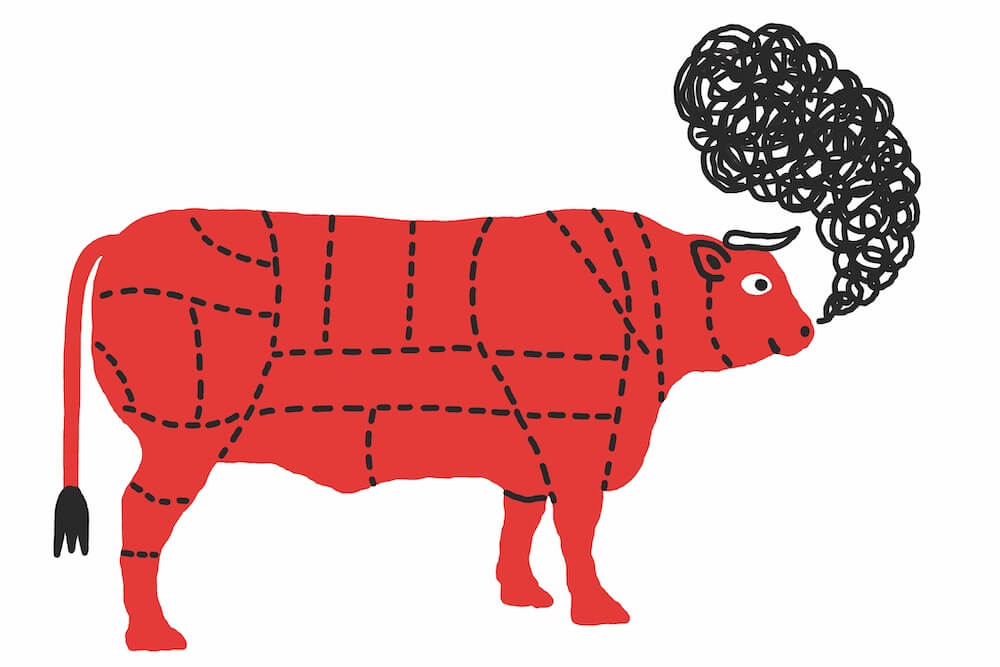Big Meat pulls from Big Oil’s playbook to delay climate action
U.S.-based agro-giants have spent hundreds of millions obscuring the role meat and dairy play in climate change
July 22, 2021
SUMMER 2021 ISSUE
CORPORATE KNIGHTS

Illustration by Benoit Tardif
FacebookTwitterEmailLinkedInPrintShare
Producers of meat and dairy products love to talk about their commitment to health. But whose health are they really promoting?
A new study from New York University says top international food producers are lagging behind industries that are actively trying to cut greenhouse gas (GHG) emissions. Worse, the researchers say, U.S.-based agro-giants have spent hundreds of millions campaigning against climate action and obscuring the role meat and dairy play in damaging the planet.
It’s enough to make you switch to bean burgers.
The study, The Climate Responsibilities of Industrial Meat and Dairy Producers, in the journal Climatic Change, contends that animal agriculture generates 14.5% of all human-caused GHG emissions. The researchers examined the records of 35 major producers and found that only five, as of last summer, had joined other big emitters in pledging to reach net-zero by 2050.
The researchers also found that even the industry’s ESG leaders – which include Nestlé and Danone – generally fell short, and mainly addressed only their energy consumption. They tended to ignore emissions from their suppliers and glossed over the gritty reality that their industry runs on methane emitted by animal digestion, which is 80 times more potent than carbon in trapping heat in the atmosphere.
Many consumers know about the propaganda campaigns waged by the mining and fossil-fuel industries to dodge responsibility for climate change. The NYU researchers – Oliver Lazarus, Sonali McDermid and Jennifer Jacquet – conducted the first scholarly investigation into how 10 U.S. meat and dairy giants influence regulators and the public. They concluded that between 2000 and 2020, Big Ag (meat and dairy and other sectors) invested US$750 million in supporting political candidates. (That’s only slightly less than the energy industry’s comparable spend: US$1 billion.)
The study found that all 10 companies engaged in research that minimizes the link between animal agriculture and climate change. Three firms – Tyson, Cargill and Smithfield – went even further, supporting “countermovement organizations” or similar groups that play down the link between agriculture and climate change.
The researchers hope their revelations about the politics of bacon and eggs will help the meat and dairy industry, regulators and environmental reformers find common ground to establish new levels of reporting and accountability. In the absence of significant climate action, the World Resources Institute warns that total agricultural emissions could increase 58% by 2050 – a sizzling scenario that will only ensure we’re all done like dinner.
No comments:
Post a Comment